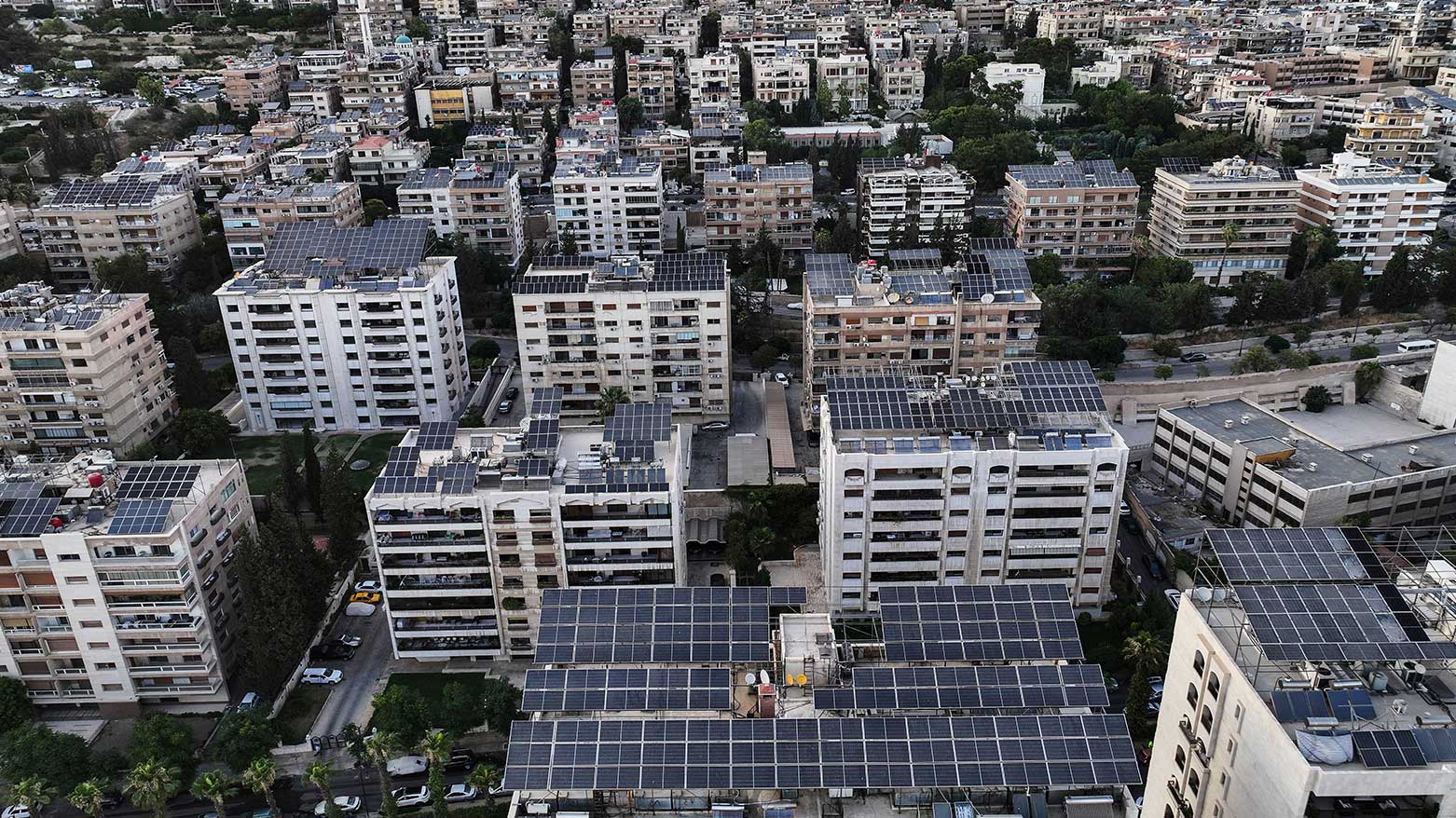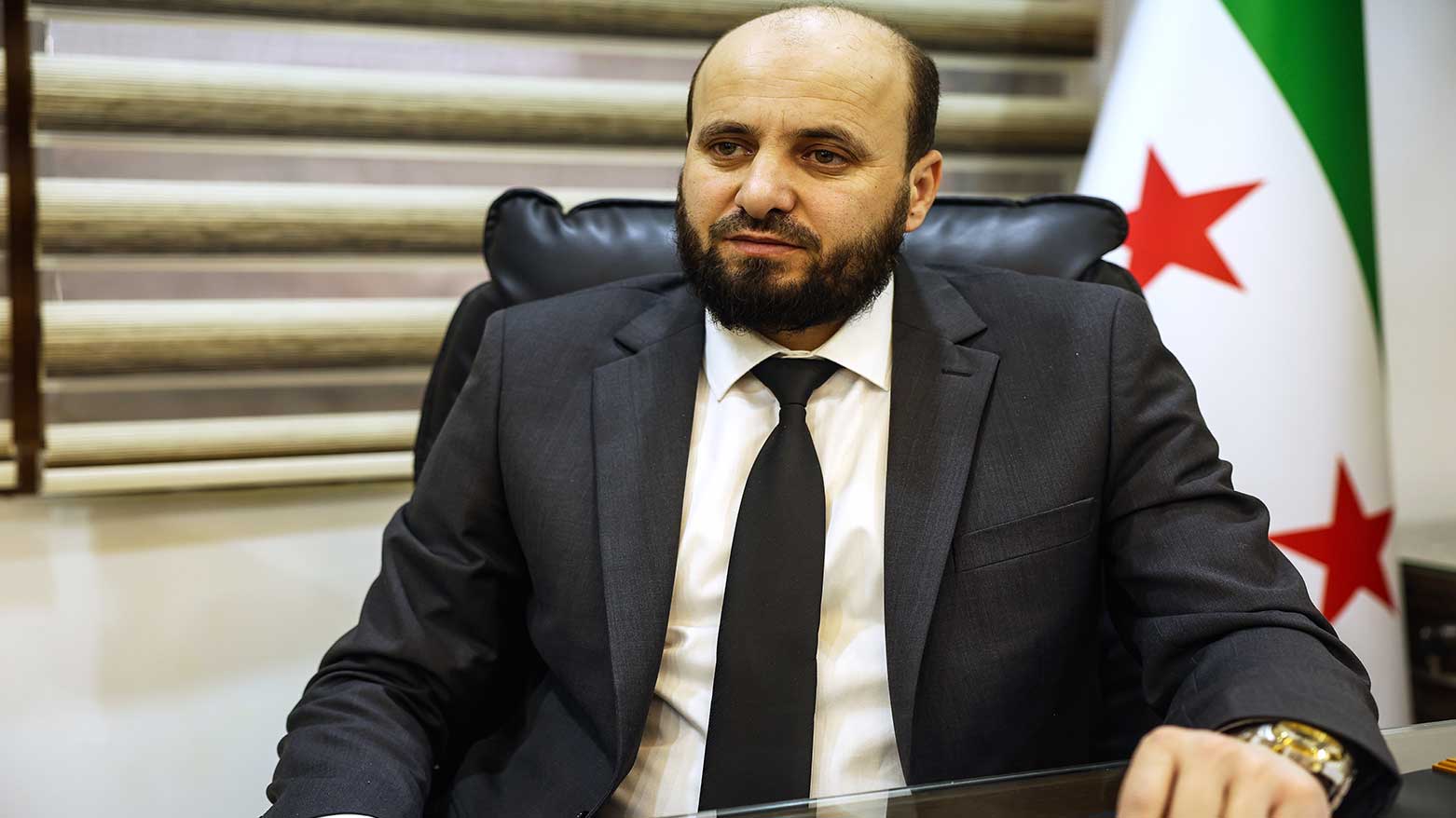With Sanctions Lifted, Syria Eyes Solar Power and Infrastructure Revival to End Energy Crisis
UNDP also sees renewable energy as central to Syria’s recovery. A new energy plan, set to be finalized within a year, will analyze the country’s future demand and the role green power can play in meeting it.

ERBIL (Kurdistan24) — Syria is looking to transition from survival-mode energy solutions to long-term recovery, leveraging the recent lifting of U.S. sanctions to repair war-torn infrastructure and launch major renewable energy projects, according to AFP.
For years, Syrians like Abdulrazak al-Jenan survived on makeshift power sources. From the rooftop of his Damascus apartment, al-Jenan wipes dust off a solar panel he went into debt to purchase in 2019 — a desperate but vital move during a time when state electricity was available for less than four hours a day. “We really were cut off from the entire world,” he told AFP, recalling how charging a phone or running a refrigerator once felt like a luxury.
But after nearly 14 years of civil war and over a decade of crippling international sanctions, Syria is entering a new phase. With the ouster of former President Bashar al-Assad in December and a shift in U.S. policy, the current leadership hopes to overhaul its collapsing power grid with the help of international investment and green energy solutions.
Syria's interim Energy Minister Mohammad al-Bashir acknowledged that while rooftop solar panels helped families like al-Jenan’s survive, the real solution lies in large-scale state infrastructure. “The solution to the problem isn’t putting solar panels on roofs,” al-Bashir said. “It’s securing enough power for the families through our networks in Syria. This is what we’re trying to do.”

With the removal of U.S. sanctions through executive orders signed by President Donald Trump, foreign investments are beginning to flow back into the country. In a bold sign of Syria’s energy ambitions, a $7 billion energy agreement was recently signed with a consortium of Qatari, Turkish, and American companies. The plan includes the development of four combined-cycle gas turbines totaling 4,000 megawatts and a 1,000-megawatt solar farm, aimed at meeting about 10% of the nation’s power demand.
Still, a significant portion of the strategy focuses on restoring infrastructure damaged during the war. The World Bank has approved a $146 million grant to help Syria rebuild key transmission lines and substations. While existing infrastructure can generate up to 5,000 megawatts — nearly half the country’s need — shortages of gas and fuel have hindered actual output. That, too, is expected to change with the easing of sanctions.
“Many companies over the past period would tell us the sanctions impact matters like imports, implementing projects, transferring funds, and so on,” al-Bashir noted.
The UN Development Program (UNDP) also sees renewable energy as central to Syria’s recovery. A new energy plan, set to be finalized within a year, will analyze the country’s future demand and the role green power can play in meeting it. “Given the critical role of energy in Syria’s recovery, we have to rapidly address energy poverty and progressively accelerate access to renewable energy,” said Sudipto Mukerjee, UNDP’s resident representative in Syria.
Under the Assad regime, U.S. sanctions not only crippled Syria’s economy but made even basic repairs nearly impossible. Spare parts, fuel imports, and financial transactions were all blocked or delayed. Electricity prices skyrocketed, exacerbated by inflation and subsidy cuts, and 90% of Syrians were pushed into poverty. Solar panels and private generators became the preserve of the privileged few.
“There is also a need to diminish the cost of electricity in Syria, which is one of the most expensive in the region,” said Joseph Daher, a Syrian-Swiss economist and researcher, emphasizing that true recovery depends on a functioning and affordable energy sector.
Syria’s new leadership sees the lifting of sanctions as a cornerstone of its broader economic strategy. “The executive order lifts most of the obstacles for political and economic investment with Syria," said Qutaiba Idlibi, head of the Americas section of the Foreign Ministry. "Right now, we have a partnership with the United States as any normal country would do."
As summer temperatures soar to 35°C (95°F), al-Jenan turns on his fans and television, grateful for the power his solar panel provides — but hopeful it’s just a temporary fix. “We can at least know what’s going on in the country and watch on TV,” he said. “But real electricity—everyone—would mean we’ve finally turned a page.”
